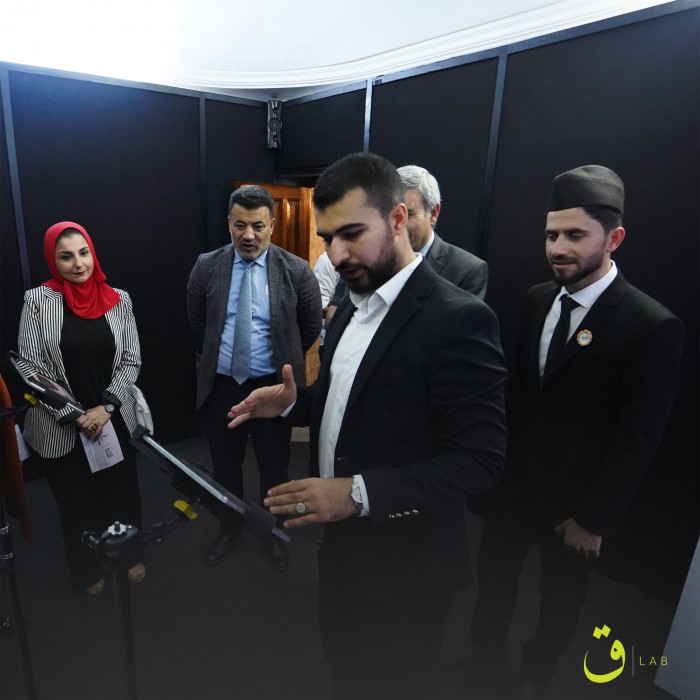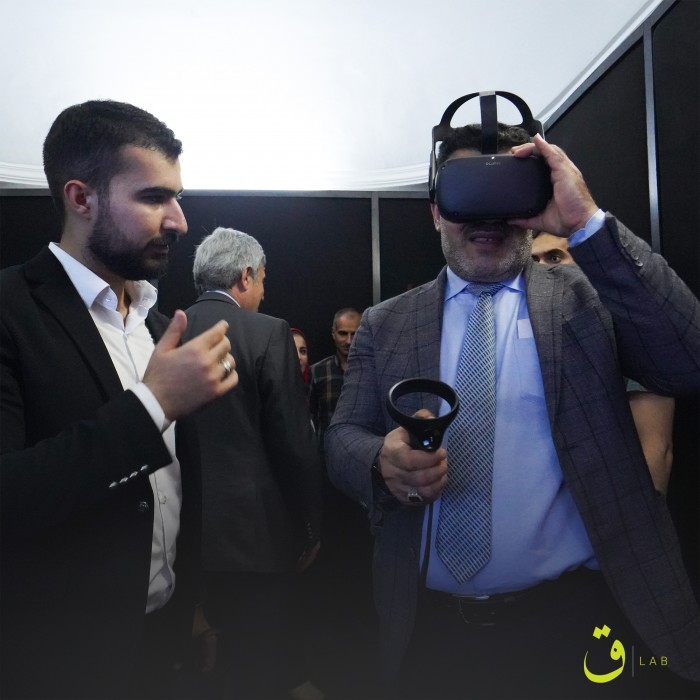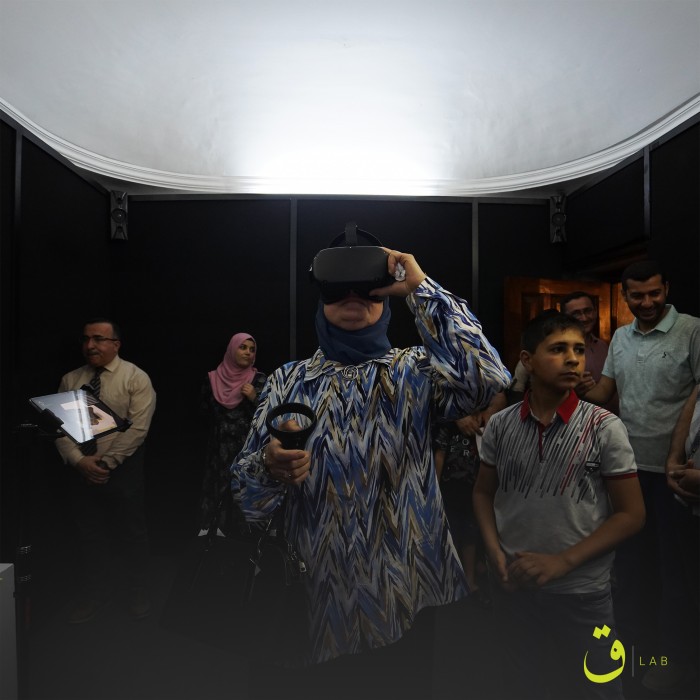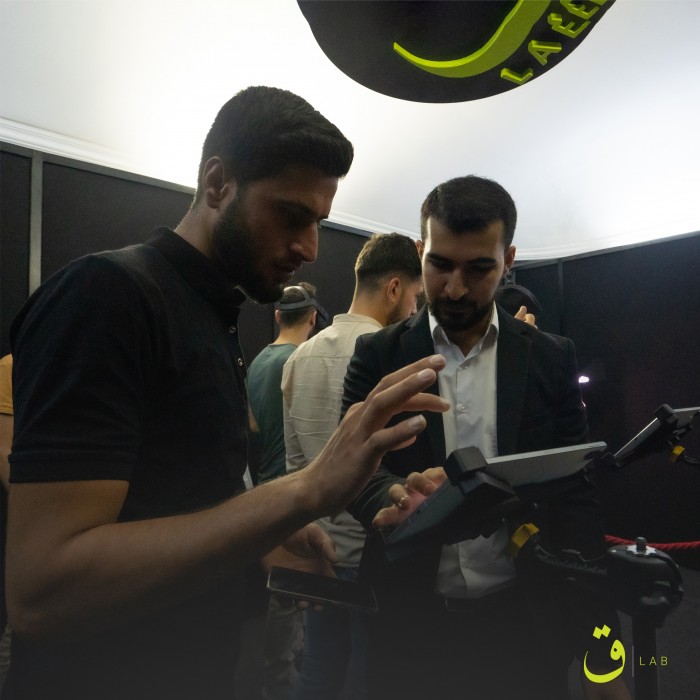In the aftermath of the severe destruction of Mosul’s heritage assets and displacement of its communities, Mosul’s long-lived tangible and intangible heritage is at risk of disappearing.
In collaboration with the Mosul Heritage Team, QAF Lab has participated in the opening ceremony of the Mosul Heritage House. QAF Lab has now a dedicated room inside the house to showcase how our VR Team and Media Team have worked jointly on several virtual productions using 3D designs and photogrammetry techniques as part of the heritage documentation and cultural preservation process.
QAF Lab’s section proposes a novel approach for exploring virtual sites by exploiting modern technologies. The main focus of this technology is to provide a mobile access to hidden or inaccessible sites (e.g. archeological sites, ancient mosques and temples, etc), using 3D representation and breaking the usability barrier that often hinders the navigation in complex models on top of mobile devices. In QAF’s section, visitors can view 3D models from any angle without any headwear by virtue of a hologram, a very new type of display that utilizes light diffraction to create a virtual three-dimensional image.
This initiative goes in line with QAF’s aims to contribute towards reviving and preserving Nineveh’s heritage. A part of this initiative is to digitally document some of Mosul’s old downtown historic structures representing notable case studies of the city’s tangible heritage. Researching historic records, pictures and archives, whilst compiling 3D virtual surveys of the buildings and spaces, we will develop a digital archive and database of the Old city’s heritage.
“This is the first of many initiatives that we are planning with our partners. A small, yet ambitious project that has a chance to become one of the pilot projects for cultural development of our country” — Mohammed Al-Samarrai, Co-founder @ QAF Lab.




